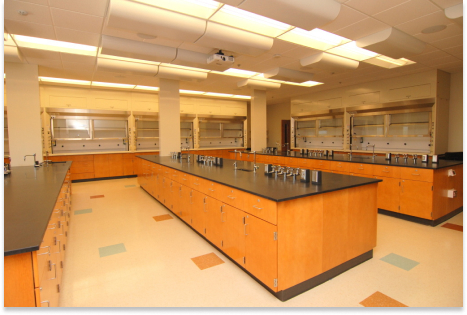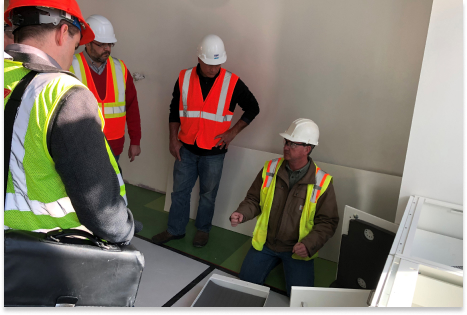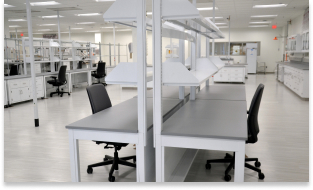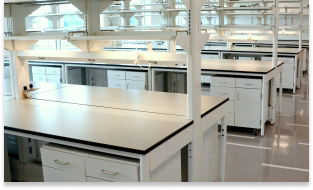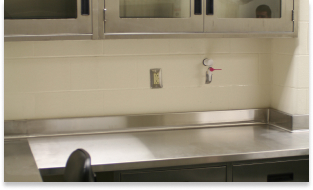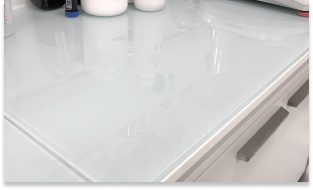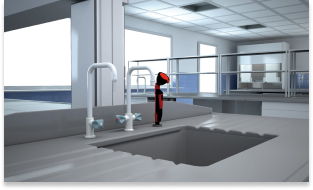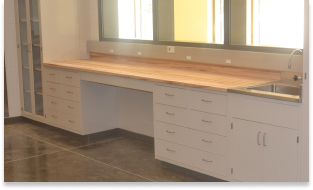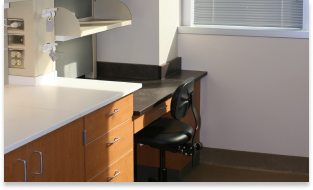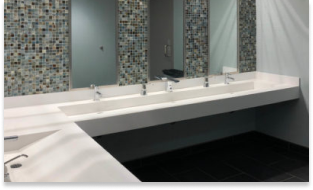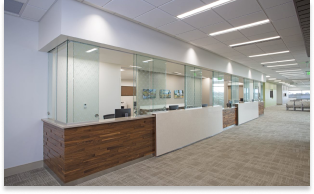Countertops are as varied as the environments in which they are installed. From laboratories handling harsh chemicals to 3rd grade classrooms, there is a countertop for every application. Picking the right countertop requires a thorough knowledge of the pros and cons of each material and the long-term results you can expect. DECO brings 30+ years of experience installing countertops in every imaginable environment.
Epoxy Resin
Epoxy resin worksurfaces are the iconic black countertops you see in lab pictures everywhere. It has been the dominant market product over the past 50 years and is produced by mixing modified epoxy resin with silica (sand) and other inert, non-asbestos substances.
Phenolic Resin
Phenolic resin looks like and behaves like epoxy, but it is basically a thicker version of traditional plastic laminate that has been enhanced with extra chemical resistivity. It is the structural thickness, great wear properties, chemical resilience and ability to handle water that make this product lab grade.
Stainless Steel
Stainless steel is a great option for many laboratory countertops. It is an iron and chromium alloy that may also contain nickel—and for special applications or corrosion resistance—sometimes molybdenum, copper and other elements.
Glass
Glass provides a striking and modern aesthetic for a laboratory and keeps its beauty under normal use better than other surfaces. Glass used in laboratories is tempered rather than just annealed, this means that it has been treated thermally to increase its strength and resistance properties.
Ceramic/Stoneware
Technical ceramics is an extremely hard product that has an unparalleled finish that is durable, scratch resistant, thermally and chemically resistive. Acids like aqua regia or concentrated sulfuric and sodium hydroxide that would etch or mar other surfaces are no problem for technical ceramics.
Wood
Wood countertops are not as common in lab spaces, but where high physical abuse is present but low chemical use is anticipated, “butcher block” tops are often used. This top uses natural wood planks that are bonded together.
Laminate
Laminate countertops use a thin decorative phenolic or plastic sheet bonded by glue to a substrate—usually particleboard—and can mimic a wide variety of styles from marble to stainless steel. This includes standard laminate, chemically resistive laminate, and ESD laminate.
Solid Surface
Solid surface is a non-porous low-maintenance material. It can mimic the appearance of granite, marble, stone, and other naturally occurring materials, and can be joined nearly invisibly by a trained craftsman. Solid surface countertops are anti-microbial and resistive to harsh chemicals.
Quartz
Engineered stone countertop material with the durability appreciated in natural stone and the uniformity, consistency and price stability that made other solid surface products so popular.










